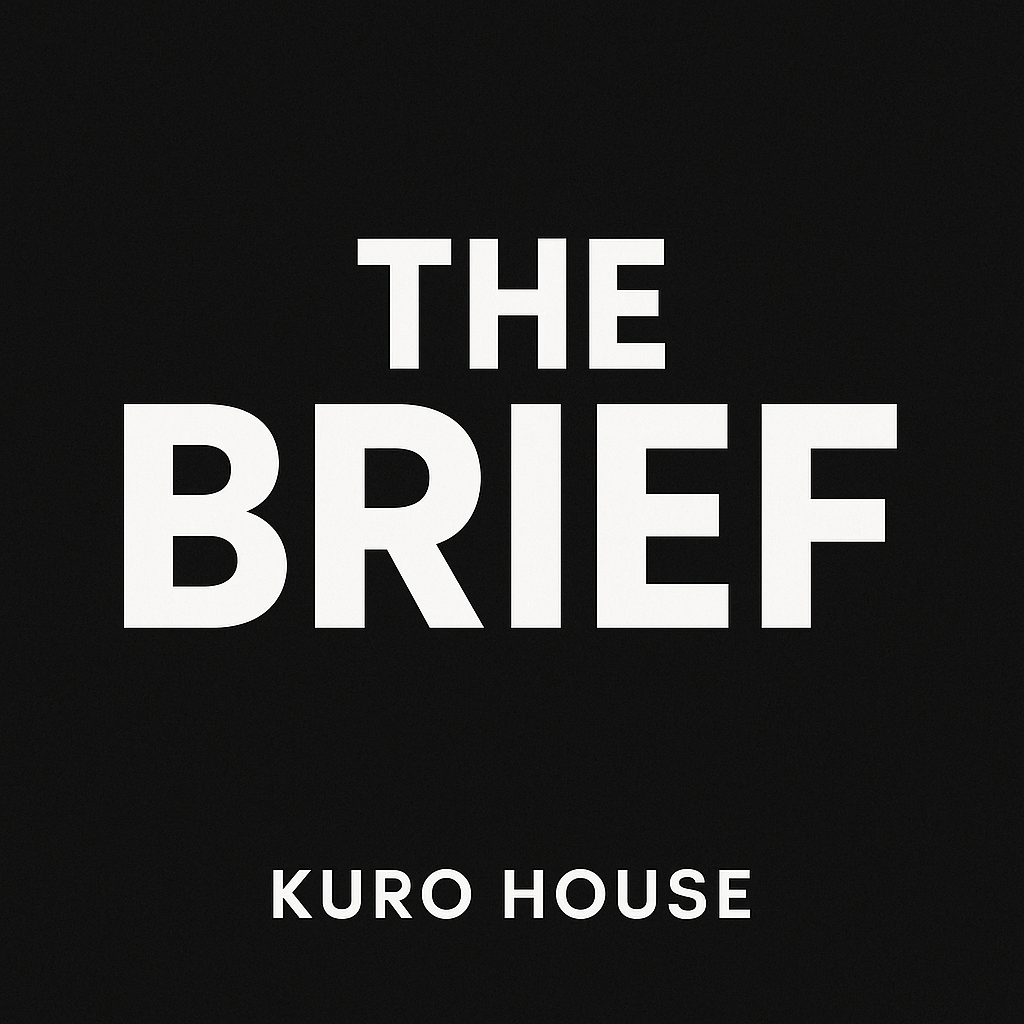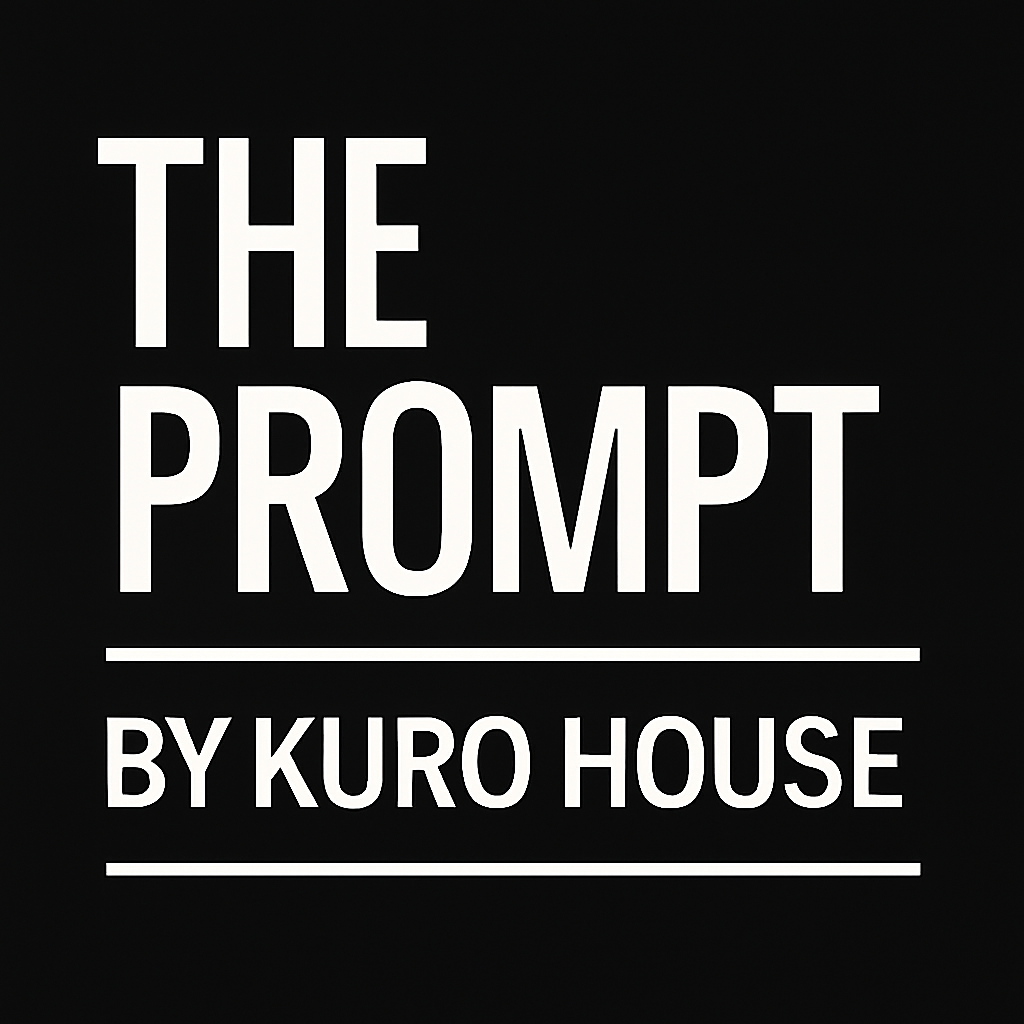Listen To The Show
Transcript
Welcome back to The Brief by Kuro House, where we cut through the noise to bring you the most compelling stories shaping the world of marketing and brand innovation. Today’s episode is packed with bold campaigns, regulatory shakeups, and a deep dive into how legacy brands are reinventing themselves for the future. Whether you’re tuning in on your commute or between meetings, we’ve got the insights you need to stay sharp.
Let’s start with a story that’s hard to miss—literally. According to Adweek, Avi Schiffmann, the CEO of AI companion startup Friend, has gone all-in on a $1 million New York City subway takeover. The campaign blankets stations and subway cars in all five boroughs with stark white posters that seem to invite graffiti and commentary. Schiffmann calls it “the world’s first major AI campaign,” even claiming they beat giants like OpenAI and Anthropic to the punch. The centerpiece is Friend’s AI-powered wearable—a sleek disc worn around the neck that listens to conversations unprompted and offers feedback via a companion app. Priced at $129, the device is selling about 400 units a week since its July launch. But the campaign isn’t just about sales; it’s a social experiment. Schiffmann deliberately designed the ads with empty white space, expecting—and even encouraging—New Yorkers to deface them. And deface they have, with messages like “surveillance capitalism” and “stop profiting off loneliness.” Schiffmann isn’t fazed, saying the backlash is part of the conversation he wants to spark, especially as the campaign targets Gen Alpha during the back-to-school season. It’s a risky move—he admits he’s spent almost all the company’s money on this—but for now, he’s betting that controversy and curiosity will drive the brand forward.
While Friend is courting controversy, OpenAI is aiming for connection. In its largest-ever brand campaign for ChatGPT, also reported by Adweek, OpenAI is showing off how the AI chatbot fits into everyday moments. Debuting during NFL Primetime, the campaign spans TV, streaming, outdoor, paid social, and influencer partnerships across the U.S. and U.K., running through the end of the year. The creative shift is striking: instead of the abstract, pointillist animation of their Super Bowl ad, these new spots are grounded in real-life scenarios—like a young man using ChatGPT to impress a date with a new recipe, or siblings planning a road trip. OpenAI’s CMO Kate Rouch said the goal is to make people think, “this is for me.” The campaign was crafted by OpenAI’s in-house team alongside agency Isle of Any, with director Miles Jay shooting on 35mm film, and even used ChatGPT as a “co-creator” to brainstorm characters and scenarios. Since launching in late 2022, ChatGPT has seen explosive growth—700 million weekly active users as of August, up from 500 million in March, and annual recurring revenue jumping from $10 billion in June to $13 billion in August. With plans to surpass $20 billion by year’s end, OpenAI is clearly investing in making ChatGPT not just a tool, but a relatable part of daily life.
On the regulatory front, the Federal Trade Commission just approved a revised consent order for Omnicom’s $13.5 billion acquisition of Interpublic Group, as covered by Adweek. This isn’t just another merger update—the FTC is putting strict new rules in place, explicitly barring Omnicom from denying ad dollars to publishers based on political or ideological viewpoints unless a client specifically asks for it. This follows concerns that advertising holding companies have coordinated boycotts of certain media sites, potentially threatening their ability to produce content. The order now includes a compliance monitor and clarifies that these restrictions only apply in the U.S. Omnicom can’t keep exclusion lists or blocklists based on ideology unless directed by a client, shifting the power back to advertisers. The deal also cleared a key review in the U.K., though the EU is still examining it. With Omnicom expecting the merger to close in the second half of 2025, this decision signals that regulators are watching how ad giants wield their influence—and are willing to step in to protect the flow of advertising dollars and media diversity.
Switching gears to brand transformation, Adweek’s Marketing Vanguard podcast featured an in-depth conversation with Francis Perrin, chief brand and sustainability officer at Rehlko. Formerly Kohler Energy, the company underwent a strategic rebrand to establish independence while preserving its heritage. The new name, Rehlko, is an anagram of Kohler—chosen to maintain continuity, but with intention: the “R” and “E” stand for resilience and reinvention. Perrin emphasized the company’s legacy, dating back to when Kohler manufactured bathtubs and then engines and generators for Midwestern farmers without access to electricity. This heritage is central to Rehlko’s positioning, especially as it pivots to residential power generation and competes as a challenger brand. The launch campaign, “Resilience as Reinvention,” highlights Rehlko’s promise to provide power where and when the grid doesn’t, focusing on values over technical specs. Notably, sustainability is embedded in Perrin’s role—he ensures it’s a core business strategy, not a side initiative. And when asked why he believes B2B marketing offers more opportunity than B2C, Perrin points to the untapped potential and the chance to truly differentiate in complex markets. It’s a masterclass in how legacy brands can reinvent themselves for new markets and new challenges.
That’s all for today’s episode of The Brief. Whether it’s AI startups provoking subway riders, tech giants making their tools more human, regulators reshaping the rules of the ad game, or storied brands finding new purpose, one thing’s clear: marketing is more dynamic—and more consequential—than ever. Thanks for joining us. Stay curious, stay sharp, and we’ll see you next time.

